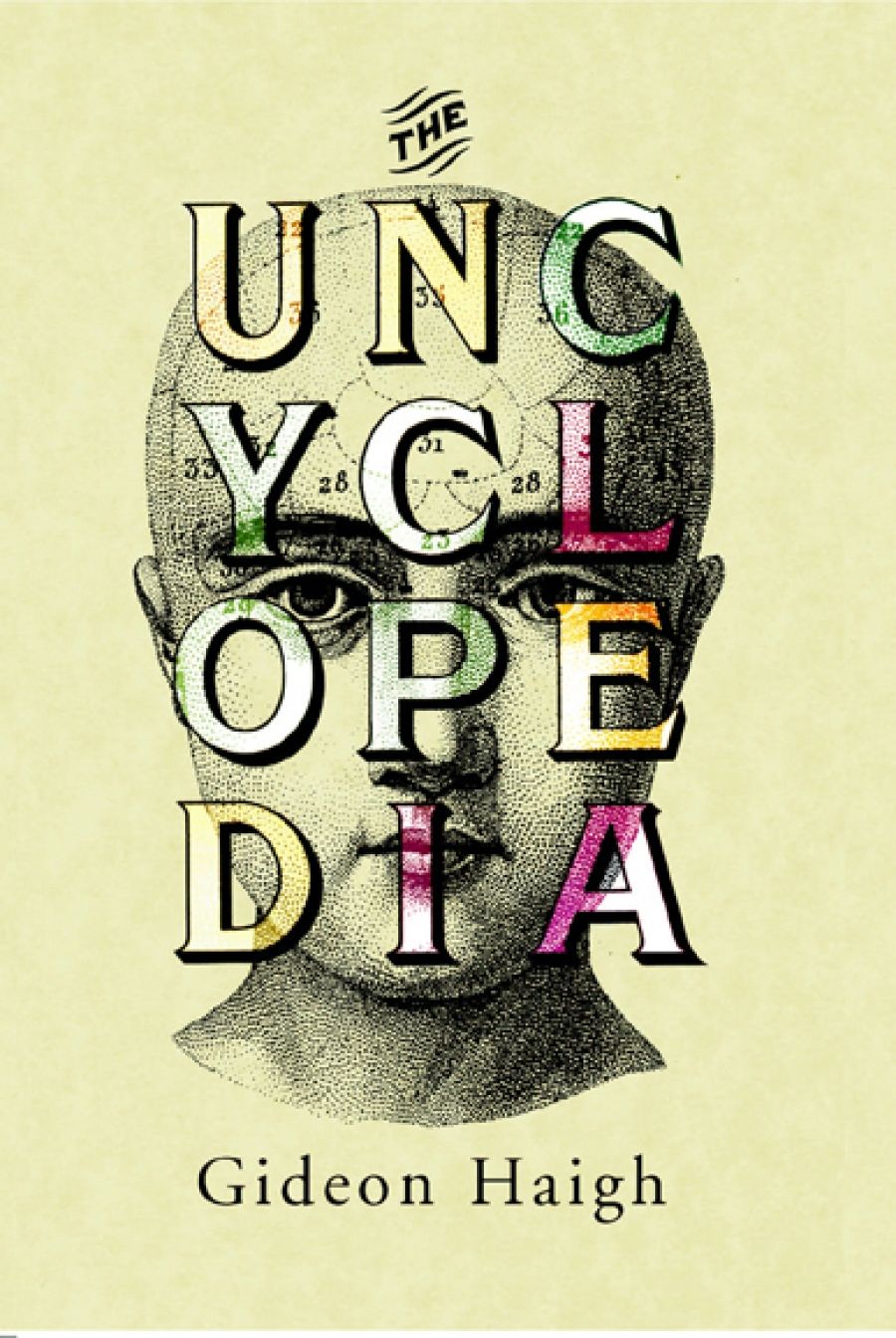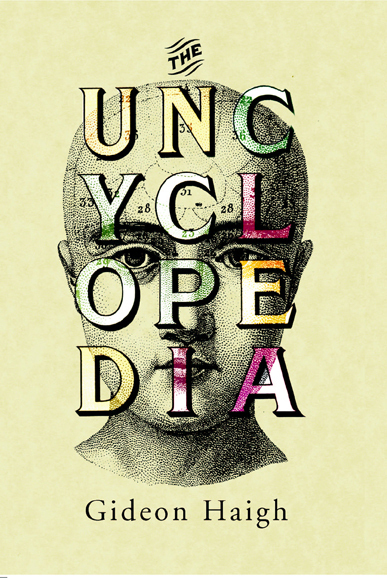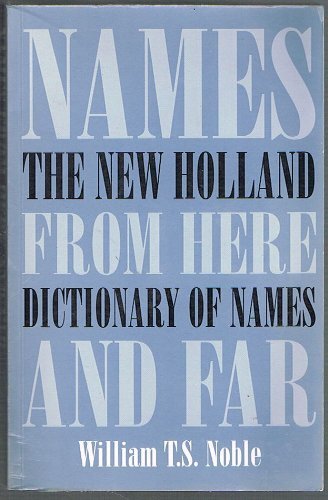
- Free Article: No
- Contents Category: Reference
- Review Article: Yes
- Article Title: Funny Inside Feelings
- Online Only: No
- Custom Highlight Text:
In Through the Looking Glass, Humpty Dumpty, among his various pronouncements to Alice, pontificates on the meanings of names. After describing the name Alice’ as ‘a stupid name enough’, Humpty Dumpty asks her what the name Alice means. Alice is doubtful: ‘Must a name mean something?’ And Humpty Dumpty retorts: ‘Of course it must ... My name means the shape I am – and a good handsome shape it is, too.’ The question of the meaning of Alice’s name is left unanswered in Lewis Carroll’s text, but it is answered in William Noble’s Names from Here and Far: The New Holland Dictionary of Names. Alice, we are told, is an English form of the name Adelaide, which in turn is a compound from the Germanic words athel, meaning ‘noble’, and Hilda, meaning ‘heroine’, or heid, meaning ‘kind’. Thus Alice means something like ‘nobly born’.
- Book 1 Title: The Uncyclopedia
- Book 1 Biblio: Text, $26 hb, 154 pp
- Book 1 Cover Small (400 x 600):

- Book 1 Cover (800 x 1200):

- Book 2 Title: Names From Here and Far
- Book 2 Subtitle: The New Holland Dictionary of Names
- Book 2 Biblio: New Holland, $29.95 pb, 567 pp
- Book 2 Cover Small (400 x 600):

- Book 2 Cover (800 x 1200):

There have been numerous books published on the origins of names, but this one is different because of its Australian emphasis. For example, where a name is part of Australia’s early history, such information is given. Thus, after explaining that Reynolds is an English patronym of a Germanic compound name from ragin, meaning ‘counsel’, and ragin, mean-ing ‘rule’, Noble adds: ‘Charles Reynolds was a marine guard with the First Fleet. He arrived on the flagship Sirius and was assigned to Sydney Town.’ More recent Australian name bearers are also mentioned, including Dennis Lillee, Lleyton Hewitt (under Leyton), Paul Hasluck and Kylie Minogue. In the introductory sections, Noble moves beyond the European bias of many books of this kind, and sets out the naming protocols of the many groups of people who have migrated to Australia. Thus he moves through Afghan, Arabic, Armenian and Bosnian to Timorese, Turkish, Vietnamese and Welsh.
Inevitably, a book of this kind is very much a synthesis of material put forward by others, and the long bibliography attests to this fact. Such synthesising is no easy task, since the synthesiser is dealing with a large number of languages over a wide span of time, and clearly cannot have detailed knowledge of all the languages he is dealing with (for example, the Aramaic word for ‘father’ is transliterated as aba, rather than as abba). When there is more than one possible origin for a name, how does a synthesiser decide on the more likely etymology? Of Abel, Noble states: ‘The two main schools of thought are that it comes from the Hebrew word hevel or hebhel meaning breath, vapour and signifying hollowness or emptiness. The other is that it is from the Assyrian word aplu, meaning son. I am more inclined to believe the latter.’ Why? Is he having what Sir Arnold Lunn sarcastically called a FIF (‘a Funny Inside Feeling’)? All we have is the expression of an opinion, without argument, and this occurs too frequently in the book. In such cases, it would have been preferable simply to list the different theories.
There is, however, a more fundamental problem with the book. Nowhere are the principles of inclusion and exclusion explained in any way. The title of the book, despite the fact that ‘New Holland’ is also the name of the publisher, leads us to expect that it is dealing with names that exist in Australia – indeed, the blurb on the back cover describes the book as ‘a comprehensive reference to names in Australia’. I was surprised, then, to discover this first entry at the letter X: ‘XABAT: I have seen only one reference to this name in Australia. I am not sure if the bearer is a resident.’ What on earth, then, is the name doing in the book? Similarly, the names Gotobed and Govitts are included, but they do not appear in the residential sections of the electronic White Pages anywhere in Australia. The author surprisingly lists the name Pillai as English (from the name of the village Pilley in South Yorkshire, with not a mention of Tamil), but this ‘English’ Pillai is surely very rare in Australia. When Pillai occurs, it is much more likely to be an Indian Tamil or Sri Lankan Tamil name. So I conducted some random tests. Many Australian Rules footballers have German names. How many would be covered? Bock, Schell, Schneider, Sporn and Voss are here, but most are not: Beinke, Bode, Braun, Ebert, Funcke, Gehrig, Hahn, Knobel, Leppitsch, Loewe, Mensch, Neitz, Riewoldt, Schammer, Schauble, Schimmelbusch, Schuback, Schwarze, Siegert, Stenglein. Would the Italian players fare any better? Mercuri and Silvagni are there, but not Camporeale, Leoncelli, Modra, Rocca or Ricciuto. Was I being fair in using lists of Australian Rules players as tests? So I turned to the letter K in The Oxford Companion to Australian Literature. More of these names were covered in Noble’s book, but many names were missing, including Kahan, Kalamaras, Kam, Katya, Keesing, Kefala, Kelen, Kellaway, Kelleher, Kim (a very common Asian surname in Australia, but the book mentions ‘Kim’ only as an abbreviation of Kimberley), Kinsella, Knopwood, Kocan, Komninos, Kotze, Kraussman, Kynaston. There may well be very good reasons why these names do not appear in the book, but those reasons are nowhere stated.
The list-creating in which I indulged in the previous paragraph may well have been unconsciously influenced by Gideon Haigh’s Uncyclopedia. Haigh is well known as a writer of cricket books, but now he has produced a collection of diverse, but essentially unrelated, lists. An encyclopedia is a book or set of books giving information on many subjects or on many aspects of one subject, and is typically arranged alphabetically. Like a dictionary, an atlas or a bible, it presents itself as a work of order, stability and authority. There is no order in Haigh’s Uncyclopedia, whether alphabetical or otherwise. Rather, it delights in a promiscuous jumbling together of all kinds of information, some of it banal, some of it occasionally serendipitous (the Whitlamisms par excellence): ‘Thirty Songs Containing Radio in the Title’; ‘Twelve Men to Walk on the Moon’; ‘Fortune-telling Techniques’; ‘Remarks of Gough Whitlam’; ‘The Seven Wonders of the World’; ‘How to Measure a Child’s Feet for Shoes’; ‘Stages in a Bullfight’; ‘Some Quilt Designs’; and many more surprising and unpredictable topics. While there may be a dig at the seriousness of the standard encyclopedia in the title Uncyclopedia, and while the structure of the book subverts the order of the standard encyclopedia, the writer is clearly a lover of the often curious facts an encyclopedia can store. If there is parody here, it is directed at those earnestly serious and seriously dull ‘books of lists’.
While one suspects that this book is aimed at the buyer of a gift for an annoyingly difficult giftee, I think the Uncyclopedia could serve as an unbirthday present as well. In Through the Looking Glass, soon after Humpty Dumpty lectures Alice about the significance of names, he goes on to explain that the cravat he is wearing is an ‘unbirthday present’ from the White King and Queen, and further explains that an unbirthday present is ‘a present given when it isn’t your birthday’, a concept that allows 364 presents a year. The Humpty Dumpty neologism, coined, as is Haigh’s, by a witty use of the un- prefix, is entirely in keeping with the eccentric learning that is evidenced in Haigh’s book.


Comments powered by CComment